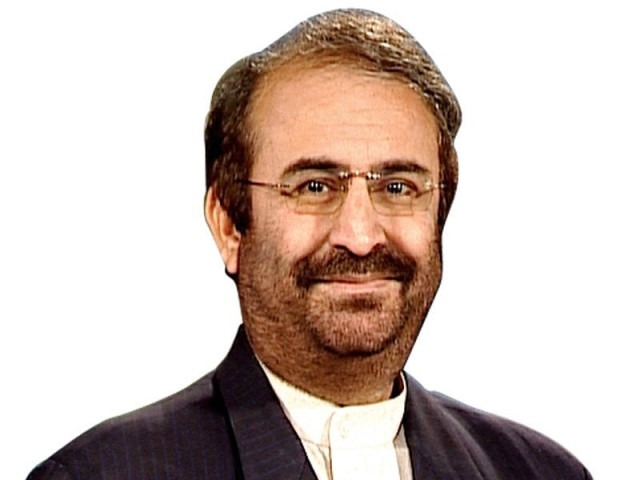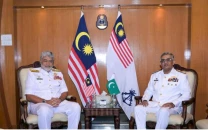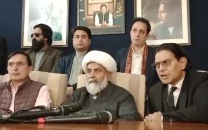Iran willing to join peace talks
Tehran’s role will show its significance to the US

Tehran’s role will show its significance to the US.
According to reports from a section of the Afghan media — Hasht-e-Sobh daily and Mandegar — Iranian Foreign Minister Jawad Zarif conveyed the request at a meeting with Afghan Chief Executive Dr Abdullah Abdullah during his visit to Tehran. Abdullah said the Afghan government will weigh the proposal.
The implications
The Iranian offer came just days ahead of the quadrilateral meeting, scheduled to be held in Islamabad next week. The role of facilitation in the peace process could be expanded, as no country has a monopoly.
Since Iran previously supported the Pakistan-brokered first-ever direct talks between Kabul and the Taliban, it could play an important role because of its good relations with Afghanistan, and contacts within the Taliban. The former top negotiator for the Taliban, Sayed Tayyeb Agha, had paid at least three visits to Iran in the last two years — a clear indication of improved ties between the two sides.
Relations between Iran and the Taliban were tense during the group’s their rule (1996-2001). However, the Taliban’s war against the US-led NATO coalition brought the two sides closer. With the threat of Daesh emerging in Afghanistan, the Taliban and Iran can get yet closer, enhancing the role of the latter in the peace process.
Flexing muscle
Political observers in Afghanistan believe Iran is also demanding a role in Afghanistan’s related consultations as efforts for peace negotiations are gaining momentum. Talking to The Express Tribune from Kabul on Friday, political analyst Nazar Mutmaeen said, “Iran’s move is aimed at maintaining its contacts and friendship with the Northern Alliance, and seeking an enhanced role for the Shiite minority.” He also said Iran’s involvement will mount political pressure on the Taliban, and show the US that it enjoys influence among important Afghan political circles.
Moreover, as peace negotiations with the Taliban may possibly be long and complicated, the involvement of more regional countries, particularly neighbours like Iran, will have a positive impact on the process. As some Central Asian states also face the consequences of hostilities in Afghanistan, their involvement would also be helpful. Turkmenistan has already offered to host the peace process as it has a lot of economic stakes in Afghanistan and the region.
Islamic nations are also keen to join the incessant peace process. The Turkish ambassador in Kabul told senior Afghan leaders last month that his country was also ready to host the Taliban and Afghan government talks, if both of the sides agreed.
There is a dire need for the involvement of more major Islamic countries. The Organisation of the Islamic Cooperation (OIC) has not played any significant role in promoting reconciliation in the war-ravaged country. It is time the OIC involves itself in the peace process, since this role would be acceptable to the Taliban.
When the US exerted pressure on the Taliban to either hand over or expel Osama bin Laden after the 9/11 attacks, Taliban leaders had suggested that the OIC play a role in the matter. The US, however, rejected all Taliban suggestions.
Published in The Express Tribune, January 9th, 2016.



















COMMENTS
Comments are moderated and generally will be posted if they are on-topic and not abusive.
For more information, please see our Comments FAQ